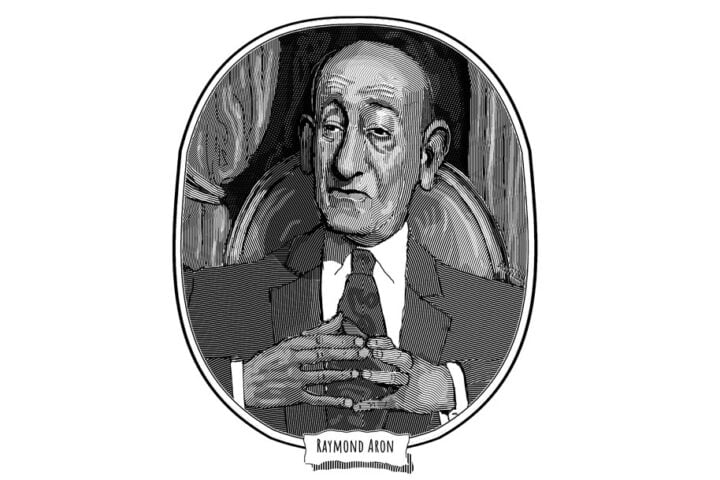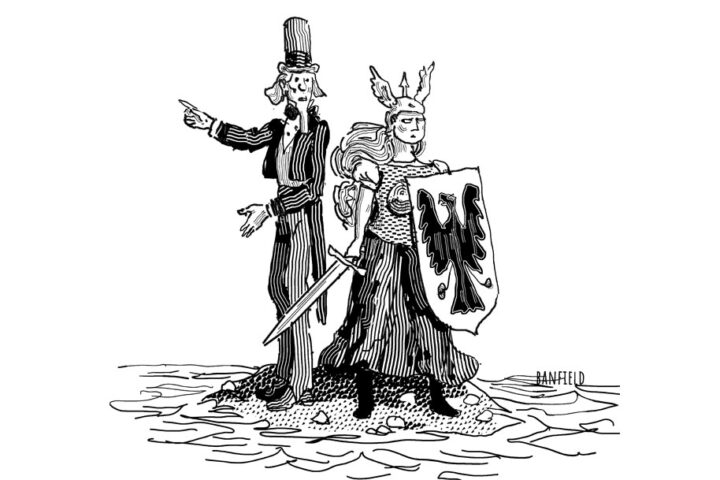Books Reviewed
If the sad fate of Ivan Karamazov moved you when you were young and sensitive, or Elizabeth Bennet became a role model, or the plight of Quentin Compson helped you through your adolescent struggles, you will thank Joseph Epstein for his new book, The Novel, Who Needs It?. Lovers of novels find much more in their favorite choices than diversion. They believe that novels have a special power to reveal the truth—that novelists get essential things exactly right, life as it truly is and human beings as they really are. Epstein agrees and happily shares his ventures into Henry James et al. with those of us who trust that novels, as he puts it, “broaden our experience, sharpen our perceptions, make us a bit wiser about the world.”
Of course, to consider that Huckleberry Finn, The Great Gatsby, and Middlemarch offer a view of human existence no other form of expression matches in depth and clarity is a rare assumption in the 21st century—a time of big data, not the Great American Novel. People talked that way in 1955, before the 140-character format turned a 600-pager by Balzac into a seeming monster. Back then, intellectuals as politically engaged and opposed as Lionel Trilling and Irving Howe regarded novel reading to be as important as studying Karl Marx and John Stuart Mill. A political critic or culture-watcher who had no literary formation received scant respect. Today, to have moments in Melville or Kafka ready for use doesn’t count for much. It takes too long to digest them; such writings are bulky and overcomplicated. Who needs all those words by one person, which take so long to absorb, when we have crowdsourcing?
***
And yet, Epstein answers in the book’s final sentence, “we may just need it more than ever before.” He is a forthright advocate: “Fiction—solid, serious, penetrating fiction—cuts deeper than such standard versions of truth-telling as those on offer in history, biography, social science, philosophy, and elsewhere.” Novels are “truer,” he insists; they capture the total condition of what D.H. Lawrence called “man alive,” which Epstein chooses as one of the epigraphs for this book. It’s not that fiction has a truth all its own, distinct from empirical truth. Rather, the novel reveals the truth straight on, with concrete insights into the actual world, private affairs, and social reality, richly and humanely. Fiction lays out the facts. A great novel “arouses the mind in a way that nothing else quite does.” It can “give us greater insight into history than history itself does.” Leo Tolstoy imparts the meaning of death better than theologians do; Charles Dickens does finances better than any economist or accountant. George Orwell, Arthur Koestler, and Aleksandr Solzhenitsyn did more to discredit Communism than any “polemic or personal account,” Epstein finds. The goal of Who Needs It? is to show how this is so.
The argument is discursive, an essay into this issue and that—for instance, the age factor (The Sun Also Rises works for 20-somethings but not 50-year-olds), the re-readability factor (five years after finishing On the Road, do you wish to read it again?), and the literary canon (Epstein lists 26 writers who improved his sensibility). Though he borrows from renowned theorists Mikhail Bakhtin, Ian Watt, and others, Epstein has no overall theory of his own, because such a conception would obscure the very particulars, the feel of things, that make a novel true. Gustave Flaubert urged readers not to focus too much on the action, for “the story, the plot of a novel is of no interest to me. When I write a novel I aim at rendering a color, a shade.” Joseph Conrad once declared that his task was “to make you hear, to make you feel—it is, before all, to make you see.” Such visions can’t be conceptualized without a loss in translation. Irving Howe liked a good political novel, but only if it “generates such intense heat that the ideas it appropriates are melted into its movement and fused with the emotions of its characters.” Milan Kundera, author of The Unbearable Lightness of Being, adds inconsistency and senselessness to the mix, since the primary interest of a novelist lies, he says, in the “role the irrational plays in our decisions in our own lives.” And don’t get too close to any one character, Vladimir Nabokov warns. That’s too partial. If you must identify with someone, identify with the author, the controlling intelligence of the whole.
***
Epstein cites many masters of the form. Their collected opinions are entertaining and astute—and also halting in that they don’t coalesce, which makes sense given the nature of the novel. As Epstein explains, “So widely do even great novels range in their differences that in considering them one finds only exceptions that prove no rules.” Marcel Proust’s gargantuan meditation is one kind of masterpiece, Tolstoy’s bitter novella The Kreutzer Sonata a whole other kind. The challenge is to appreciate each style properly. Hence, in 18 brief chapters on various topics such as the value of politics in fiction or on rules of good reading (“One should read a novel with sympathetic attention”), Epstein offers primerlike guidance of his own.
“Time takes its toll on novels,” which is a good reminder given how often a work has been praised as a sensational achievement on its first appearance only to sink into oblivion 20 years later with the other fashions of that fading time. Don’t be too quick to judge a fresh publication a Great Book, Epstein cautions. Be wary, especially, of novels that earn honors for extraliterary reasons, for example, their accord with bien pensant attitudes. As time passes and attitudes change, the work loses its force. Without a context to support it, it must stand on literary merits alone. All too often it falls.
***
Epstein’s description of this process of datedness marks the strongest critical judgment in the book. His examples are racy novels by Lawrence, Norman Mailer, Philip Roth, John Updike, and Henry Miller in the context of the sexual revolution of the mid-20th century. “When writing about sex was legally prohibited,” Epstein observes, referring roughly to the years before the landmark 1960 trial that cleared Lady Chatterley’s Lover of obscenity charges, “doing so seemed chancy, daring, brave even.” He recalls obtaining an outlawed copy of one of Miller’s Tropic books long ago, a college kid filled with “the excitement of the illicit,” eager to digest the sex parts and share a bold denial of bourgeois America with other enlightened minds sick of puritanical norms.
The melodrama of that pose, however, suggests a bit too much reliance on an adversarial context, not enough on inner virtues of the texts themselves. These works became bestsellers in their day, popular with lay readers and critics, precisely because they stood as sexual documents at a time when a graphic description of sexual acts marked a revolutionary accomplishment—not because of the sparkle of the prose, exploration of motive, or depiction of social setting. Roth, Mailer, Updike, and Miller were lucky in their timing. Sexual expression was starting to open up in 1959, but not enough for it to count as mainstream. The authors could appear as a vanguard, bold and liberating. Portnoy’s use of a hunk of liver as a prop for self-gratification—his mother would later serve it for dinner—could still shock many and titillate many more. Lady Chatterley’s Lover could become a cause célèbre precisely because of its sex scenes, nothing else. If those novels were published today, though, when WASP and Biblical resistance to obscenity have little impact on public space and a hot, sweaty scene on HBO is as customary as popcorn, they would join a pile of second-rate efforts striving for an edgy status that no longer exists. Read the novels now and they only display “an adolescent emphasis on sex,” a silly attempt to make “the bonking, planking, plonking, shagging, mating of beasts, and the scores of other names that physical love goes by” into a genuine drama, a revelation of character. At this point, Mailer’s story of a woman experiencing her first orgasm is just plain “tedious.” Without a (presumably) uptight society to offend, Henry Miller is a bore.
***
The chapter is a deeply satisfying discussion by a critic fulfilling his high task of distinguishing the fine and the not-so-fine. Epstein shouldn’t assert, “I have never thought of myself as a critic,” not when he’s thus sharpened a reader’s taste. There is much to admire in Mailer and Co., but Epstein is right: the sex tarnishes the other stuff in their books. Time has, indeed, taken its toll on the novelists most praised in our country a half-century ago, which tells us something about the turn American culture took in the 1960s. That fatal decline raises a note of regret that amplifies in the later chapters of the book when Epstein ponders the future of the novel in an internet cosmos. He wonders what becomes of a society of ever-fewer long-form novel readers. He asks if current attention spans are too Twitter-conditioned to handle these works that have meant so much to him. The novel has been the “paramount purveyor of education and entertainment over the past two centuries,” Epstein writes in his conclusion, and no possible replacements—not slick series such as Mad Men and The Wire, nor Substack, nor social media—possess the capacities of the old genre. Worst of all—perhaps the strongest reason for pessimism—is the fact that if young Americans don’t read novels, if they haven’t enjoyed Miss Betsey lighting into Murdstone or marveled at the shamelessness of Becky Sharp or felt the desperation of Kate Croy, they don’t know what they’re missing, and have no motivation to begin.





